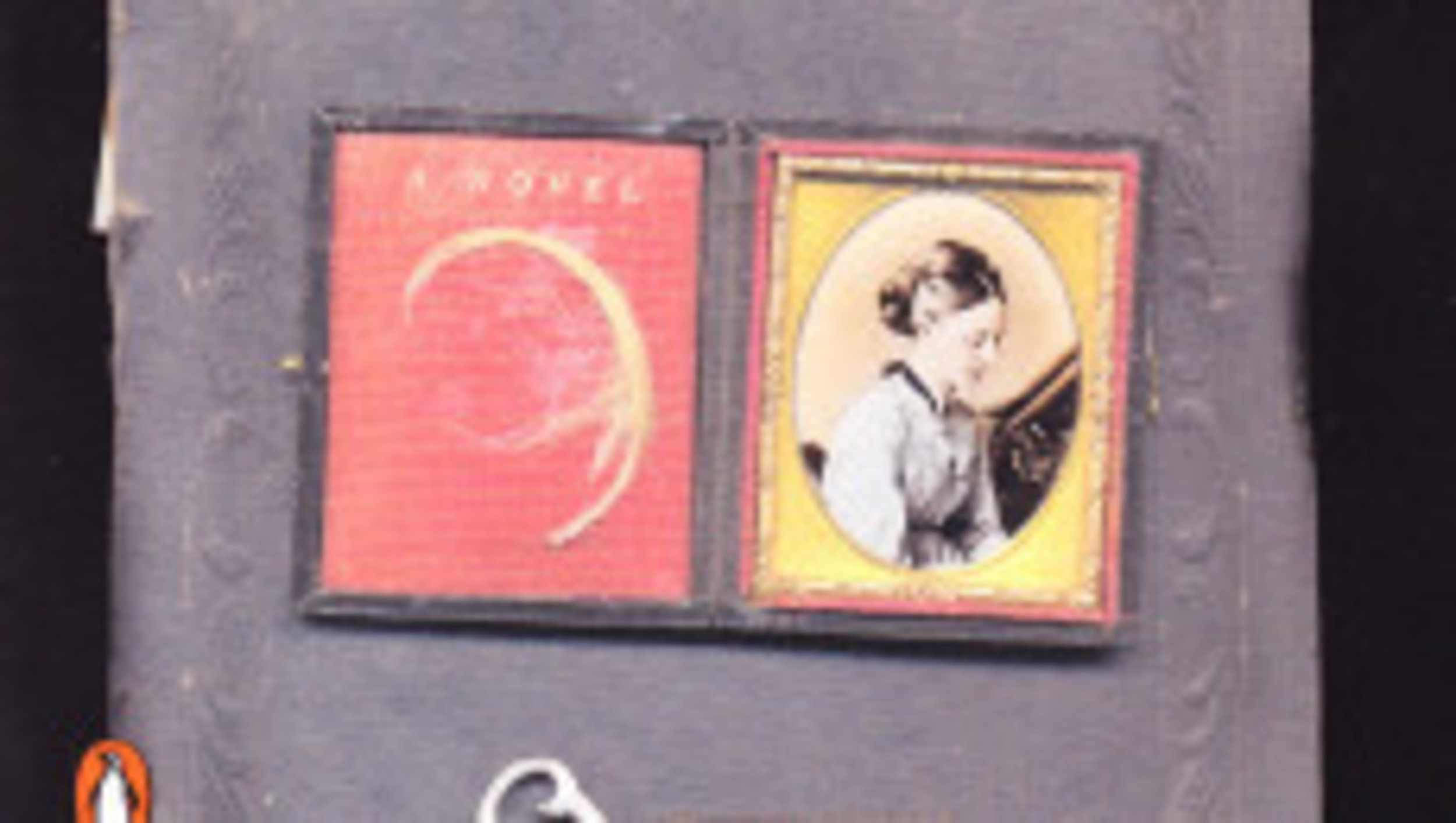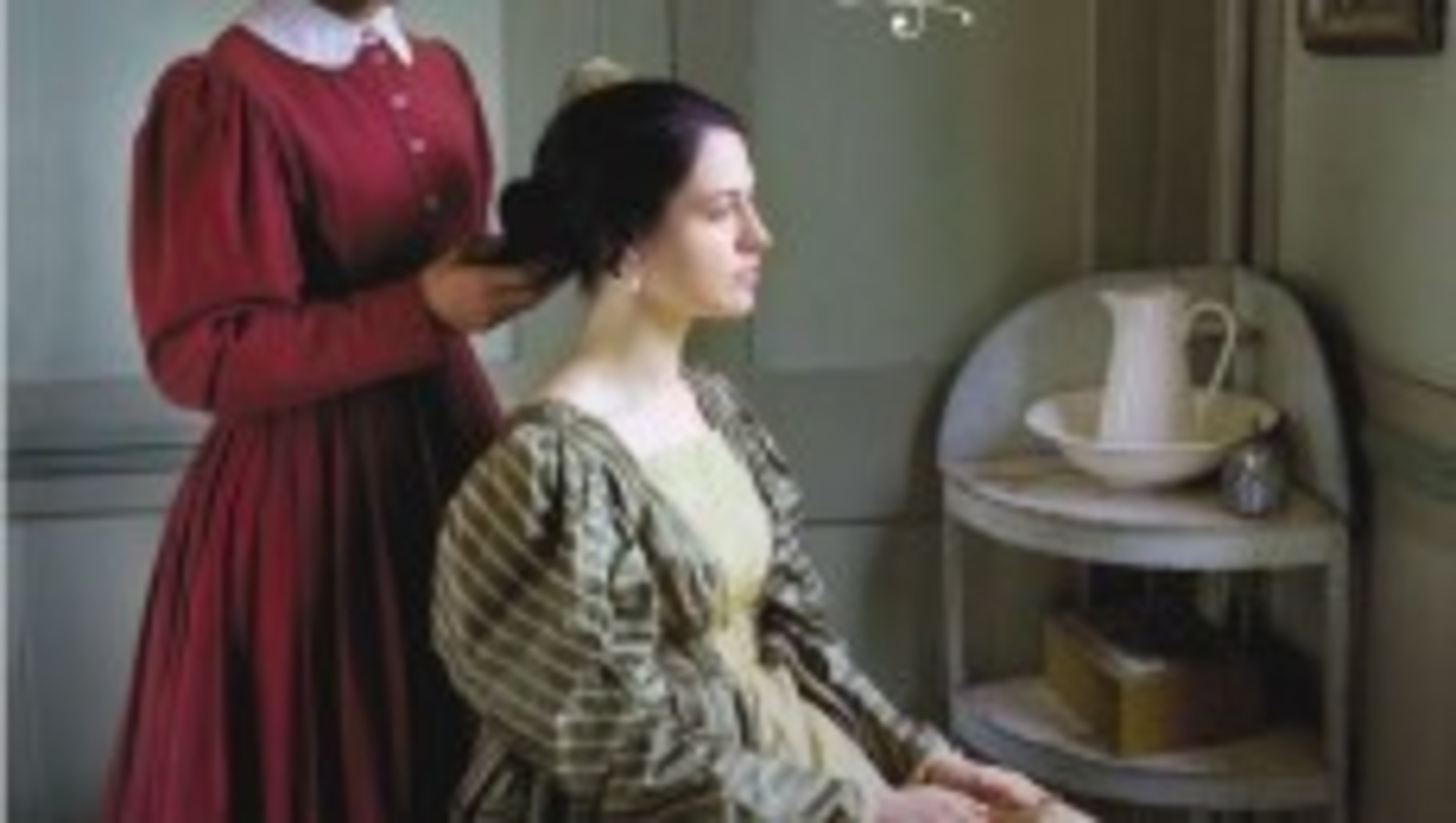Stories set in wartime for Memorial Day
March
by Geraldine Brooks
Review by Donna DeLeo Bruno
For those who enjoyed reading about the March girls: Jo, Meg, Beth, Amy and their mother Marmee in Louisa May Alcott's "Little Women" (1868), this more recent book about their …
This item is available in full to subscribers.
Please log in to continue |
Register to post eventsIf you'd like to post an event to our calendar, you can create a free account by clicking here. Note that free accounts do not have access to our subscriber-only content. |
Day pass subscribers
Are you a day pass subscriber who needs to log in? Click here to continue.
Stories set in wartime for Memorial Day
by Geraldine Brooks
Review by Donna DeLeo Bruno
For those who enjoyed reading about the March girls: Jo, Meg, Beth, Amy and their mother Marmee in Louisa May Alcott's "Little Women" (1868), this more recent book about their father's encounters while serving as a Civil War chaplain might answer your questions about his absence in their lives. March, an ardent abolitionist who actually aided John Brown in securing arms for his attack on Harper's Ferry, sets out, zealous and idealistic, to be of aid to soldiers in the Union Army. Prior to his enlistment, he and his wife had assisted slaves seeking refuge in the North through the Underground Railroad. His initial intent had been to get a position in a church where he could decry from the pulpit " the barbarous system of slavery to all who would listen." There is a lot of historical detail here, regarding particular events as well as famous people, including Ralph Waldo Emerson, Henry Thoreau, and Nathanial Hawthorne, with whom the Marches are acquainted. Both moving and poignant, this is a tale of the horrors of war, of its traumatic effect on a decent and good man whose ideals are shattered by what he observes and experiences. In poetically descriptive prose, the author conveys an accurate picture of the war-ravaged South, its cotton plantations and mansions burned to the ground, its inhabitants, both black and white, the victims of immense fear and intense suffering. Vivid and wrenching is Brooks' description of the butchering not only on the battlefield, but also in the hastily erected hospital tents where March sees limbs amputated, shrapnel extracted from gangrenous wounds, young men blinded, crippled forever, howling in agony to the heavens. He will eventually return home, but physically and emotionally damaged, unhinged regarding his former moral certainties, guilt-ridden, convinced that his own cowardice caused the death of those whose aid he flinched from. This is not only a well-wrought novel about the atrocities of war, but also the study of a man, his philosophy, his short-comings, his sweet relationship with his daughters, his distancing from his wife and the eventual healing of their marriage. It can be considered "a sister work" to "Little Women", but it can stand on its own as a first-rate novel. The historical research is considerable and the writing powerful, well-deserving of the Pulitzer Prize it was awarded.
by Erin Lindsay McCabe
Review by Donna DeLeo Bruno
"I Shall Be Near to You," a book of historical fiction set during the Civil War, is somewhat similar to a previous best-Seller, "Cold Mountain," in time, place, and characters. Both are love stories with a feisty female character, as well as chronicles of war. In this novel we have Rosetta, recently married to Jeremiah, who is intent on enlisting as a Union soldier not only to do his duty, but also to earn money with which he and Rosetta can buy their dream farm in Nebraska. Despite his reservations and reluctance, Rosetta convinces Jeremiah to allow her, disguised as a young boy, to accompany him. She is adamant in her refusal to remain safely at home. In fact, historical records indicate that there were at least 200 women who joined their husbands to fight in this war. Rosetta is a combination of these female soldiers whom the author meticulously researched in preparation for writing this novel. Rosetta and Jeremiah's love is a sweet one that will be sorely tested as they face the dangers and horrors of battle, which McCabe describes in vivid detail and compelling prose. The narrative is told in first person from Rosetta's point of view in a realistic country Southern dialect which rings with authenticity. In addition to creating this strong, complex female character, the author also provides accurate details regarding the battles of Bull Run and Antietam where the couple faces the Confederate Army in 1862. Prior to these battles, Rosetta decides to keep secret that she is pregnant, fearing discharge from the army and separation from Jeremiah who is also unaware of Rosetta's condition. In actuality there were disguised female soldiers who, while pregnant, fought alongside their husbands in the Civil War. Much of the information contained in this book was gleaned from actual letters written by these women who served, particularly those by the real Sarah Rosetta Wakefield to her family back home. Another inspiration to the author was a New Jersey woman who in her second trimester was wounded, returned to duty, was promoted, fought in Fredericksburg in her third trimester, was promoted again, went into labor on picket duty, and delivered a baby boy, much to the surprise of her entire regiment. The Rosetta in this story is strong, plucky, determined, devoted to her spouse and cause, as were her real counterparts, heroines never mentioned in the history books. Erin McCabe has finally recognized them through "I Shall Be Near to You."
by Jennifer Chiaverini
Review by Donna DeLeo Bruno
"Mrs. Grant and Madame Jule," as with Chiaverini's previous works, "Mrs. Lincoln's Dressmaker" and "Mrs. Lincoln's Rival," is historical fiction. Set in the mid-to-late 1800's, it not only provides background regarding the politics of the time, but also delves into the intriguing personalities of the primary characters and their relationships. The "Jule" in this story is the Negro slave given to Julia Grant by her father when she was 4 years old. In childhood they were inseparable playmates, as close as sisters, but as they become older, their relationship becomes more ambivalent. When Julia marries the love of her life, Gen. Ulysses Grant, a Union soldier and ardent abolitionist, she still insists on keeping Jule who eventually runs away to freedom. Julia follows her husband wherever his battle missions take him, sometimes sleeping in tents in makeshift army camps. Even after four children, she continues to lend him the support of her presence, moving the entire family to towns and cities close to the battlefields. This is as much a love story as a war story. Her devotion to him was the stuff of legends; his passionate love letters testimony to his overwhelming need for her.
The book is replete with information about historic Civil War battles like Shiloh, Vicksburg, and Appomatox, as well as famous generals including McCllelan, Meade, Sherman, Sheridan, Bristol's own Ambrose Burnside, and Confederate Robert E. Lee. But the strength of the author lies not in her research of these people and events (though it is thorough and accurate), but in her sharp portrayal of the characters who come alive through her writing. Mary Todd Lincoln, for example, comes across as a mentally vulnerable, insecure, and troubled woman who takes offense easily and retains grudges. President Lincoln, in contrast, is fair and just, humble and self-deprecating, devoted to his family, as is General Grant, whom the President trusts completely to deliver the victories needed to end the war. Grant, himself, is totally dedicated to the cause, devoted to his soldiers who are inspired by him, unpretentious, considerate and empathetic, even of his enemies. A true gentleman of honor, integrity, and humanity, Grant refuses to gloat over the fall of the South, and arranges the surrender of General Lee, in such a dignified manner so as to demonstrate the utmost respect for his Southern counterpart. As for his wife Julia, she is an adoring, admiring, unconditionally supportive wife and mother to their four children, true to her marriage vow: "Wither thou goest, I will go." She wants only to be with him, even when it requires extensive, uncomfortable, and dangerous travel; and she feels honored to be the wife of so fine a man. This is a moving tale of the loving marriage of Julia and Ulysses Grant, our 18th President, who shunned the limelight and felt more comfortable in the role of soldier surrounded by his faithful troops than as Commander and Chief in The White House. Still, when called to duty, whether in battle or government, he never failed to respond, always with Julia by his side.
by Pam Jenoff
Review by Donna DeLeo Bruno
Pam Jenoff's "The Winter Guest" is set in Nazi occupied Poland during WWII. When posted there for the State Department working on Holocaust issues, the author came up with the plot of a downed American airman (Sam) rescued by a young Polish woman (Helena). To help him, Helena endangers not only her own life, but that of the family she is trying to support and keep together following the death of her father and hospitalization of her mother. Food is scarce and she scrounges the nearby forest for whatever is edible. In addition, she trades on the Black Market, which, if caught, is punishable by death. But her two young sisters , one a toddler, her ten year-old brother, as well as her twin Ruth are all dependent on her resourcefulness and leadership for survival. All around her is danger, freezing temperatures, and destruction. As she hides Sam in the ruins of a chapel in the forest and brings him whatever food she can obtain, their relationship blooms into a deep and committed love, which exacerbates the strain that has always existed between Helena and her twin Ruth. At times Ruth fears that Helena will attempt an escape with Sam and abandon her and the children, but Ruth underestimates her sister's love and deep devotion to all of them. This is a story of the horrors of war and a romance that blossoms despite suffering, deprivation, and near death. It is a tale of betrayal and the ultimate need for forgiveness. It is a story about making irrevocable, life-altering decisions in overwhelming, unpredictable situations. In addition, "The Winter Guest" is a well-written suspenseful novel, full of twists and surprises in a captivating, well-woven plot.
Donna DeLeo Bruno is a native Bristolian and a retired teacher of writing and literature. She now splits her time between Bristol and Ft. Lauderdale, Fla., where she gives book reviews at the local library as well as at book clubs and women's clubs. Some of her most enjoyable and relaxing hours are spent reading a book beneath the shade of a tree at the foot of Walley Street with the sun sparkling its reflection on the water.













